On Friday, April 22, communities from across Guatemala marched into the capital in protest of an economic development model that prioritizes corporate interests over the rights of communities to water. The activity coordinated the arrival of four marches entering at different points of the city; some organizations and individuals joined particular sections as they entered while others, including those from the department of San Marcos, walked over 250 kilometers to get there.
The “March for Water” (Marcha por el Agua) converged in Guatemala City to draw attention to the fact that the city’s water supply originates on indigenous and campesino land – areas in which communities are fighting against the privatization of water, the diverting of river sources for sugarcane and African palm production, and the industrial contamination caused by extractive industries that are polluting water supplies.
In a statement released by Movimiento Semilla in support of the march, they explain:
“Guatemala has sufficient water to satisfy its needs. Nevertheless, almost three million people do not have access to potable water and six million do not have access to sanitation services. Irrigation isn’t considered an issue of food security. And three out of every five children are malnourished. Yet the latest figures from 2010 show that 61% of water destined for irrigation was used by sugarcane and African palm production. Banana, plantain, and melon production used 22%. How much of the water is being diverted from rivers for commercial use?
Water is a fundamental right outlined in our Constitution. It is a vital natural resource, useful to the economy and vital to the environment. It is critical to recognize that water is a finite resource, distributed by the environment in a way that is not consistent and that requires deliberate management based on the principles of solidarity and social equity, economic efficiency, environmental sustainability, and respect for the historic rights of indigenous peoples.”
Maria Antonia Solares, a representative from the community of San Juan Bosco explained why she was present at the march:
“For more than six years, we have struggled to protect our land and water. Today, more than ever, we see that the government – instead of helping us – sells the water that gives us life and the land that provides for us daily. We aren’t in agreement with the legislation passed by Congress that favors transnational companies.”
The small farming community of San Juan Bosco, located just eight miles from the Escobal mine, has resisted the expansion of Tahoe Resources and other mining companies into their area for several years, concerned about the impacts the Escobal mine is already having on water and crops in the area.
The march was convened by the Asamblea Social y Popular (ASP), one of the organizing bodies born out of last year’s Renuncia Ya protests around corruption and the strengthening of democracy. In a convening statement, the Asamblea writes:
“We continue to defend and demand the rights to water, mother earth, territory, life, and the self-determination of all peoples, as a fundamental step in building a plurinational State, where everyone lives in equitable conditions and works towards the common good. This is why we:
- Demand the restoration of our water spring sources, rivers, lakes, lagoons, mangroves, and marine coasts that have been polluted, taken, and diverted by the companies and extractive projects for commercial purposes.
- Strengthen the coordinated defense of water, land, food, and territory.
- Support awareness-raising in Guatemalan society about the economic policies that have negative impacts on mother earth, water, and the life of all living beings, while raising awareness about root causes.
- Denounce the criminalization and persecution against the leadership in campesino, indigenous, social, and popular moments.
The march brought thousands of people into Guatemala City’s central square. See below for photos from the march and follow the conversation on twitter using the hashtag #MarchaPorElAgua.

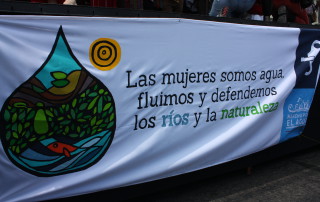
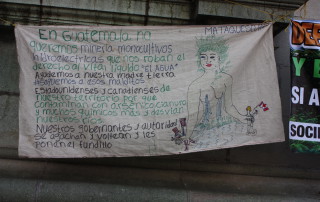
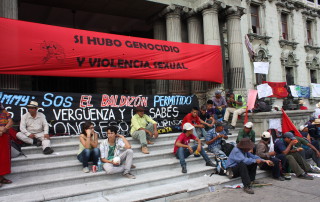
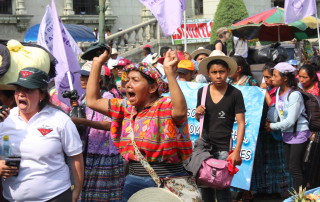
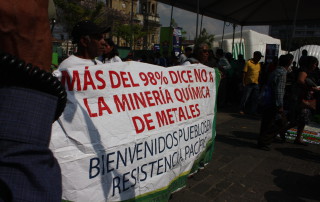
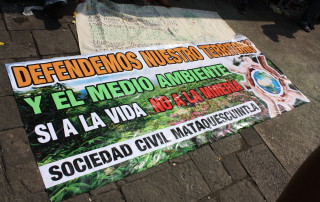
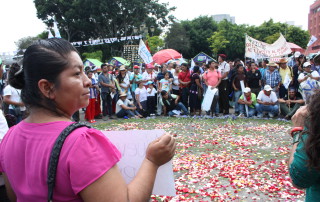
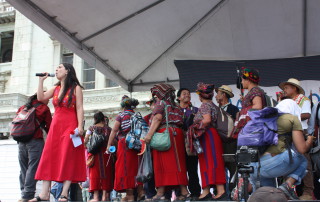
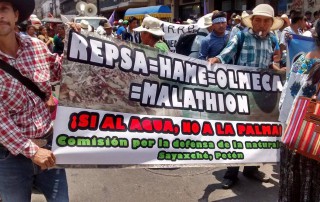
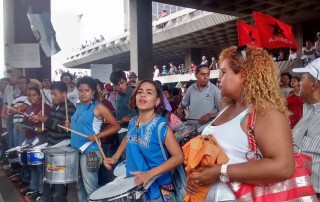
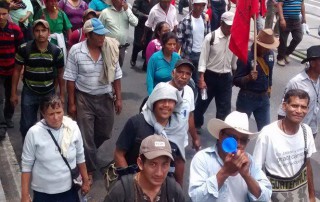
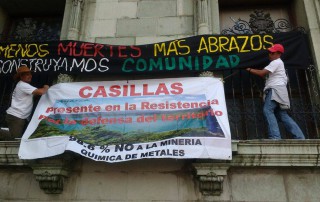
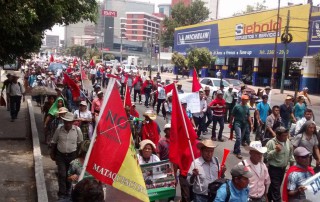
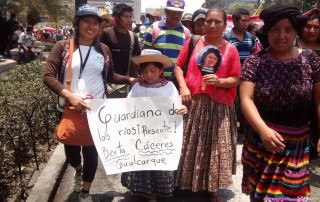
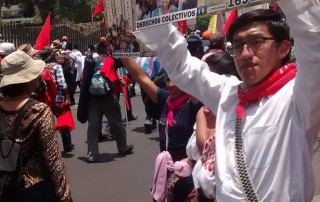

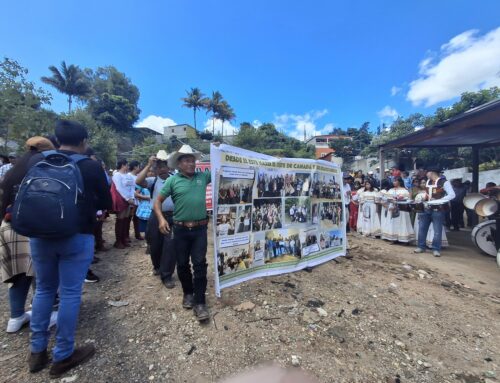
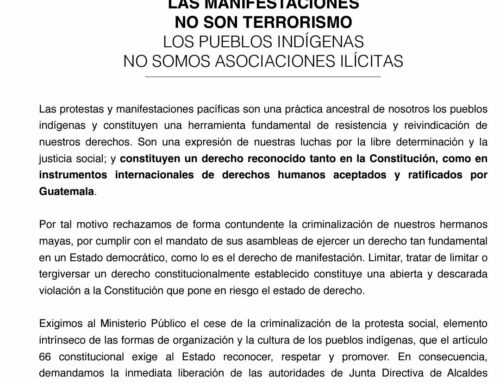
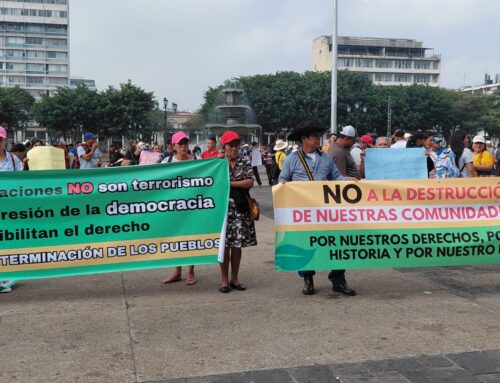
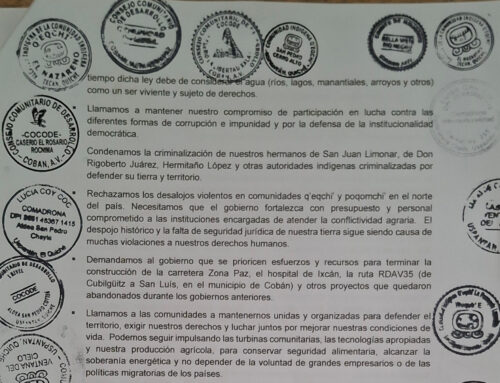
Leave A Comment